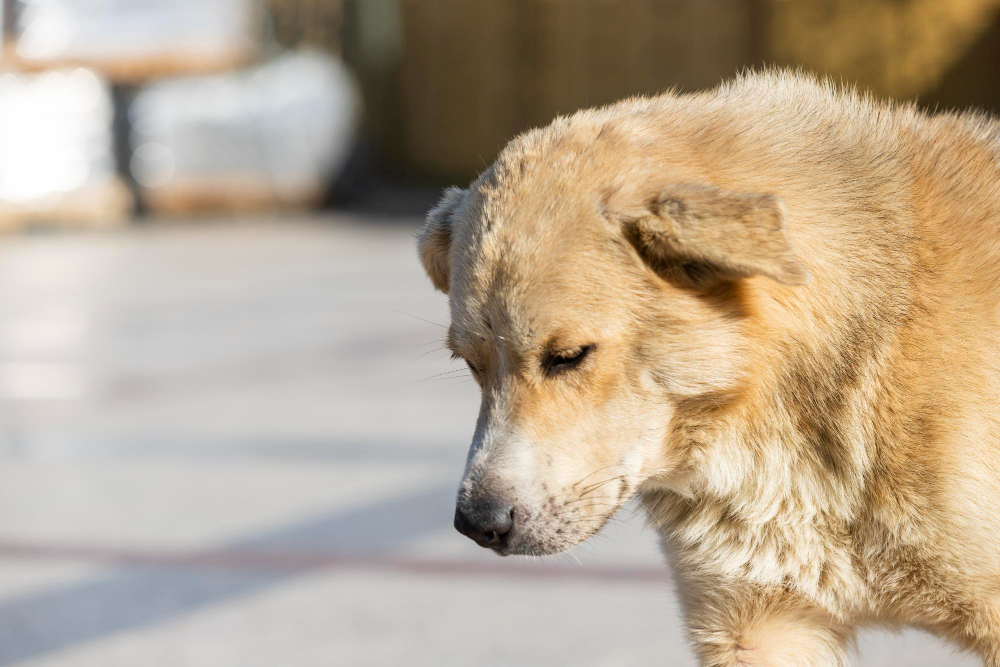Dog sneezing is a common behavior often associated with playful activity or as a response to external irritants. But have you ever wondered, “why is my dog sneezing so much all of a sudden”? This sudden change might leave dog owners worried, questioning if it’s a sign of a deeper health issue.
The Normalcy of Canine Sneezing
Before diving into the potential causes of increased sneezing, it’s important to understand the normalcy of the behavior. Believe it or not, dogs sneeze when they play. This ‘play sneeze’ is an instinctive action used by dogs to convey a sense of non-aggression to their playmates. It’s their way of saying, “I’m just playing, not fighting!” So, if your dog is sneezing during a game of fetch or a playful wrestle, there’s no need for concern.
However, if your dog’s sneezing seems to go beyond this play behavior, then it may be time to investigate further.
Reasons for Frequent Dog Sneezing
If you find yourself asking, “why is my dog sneezing so much all of a sudden?”, there could be several reasons. These can range from mild irritants like dust or pollen to more serious issues like respiratory infections or the presence of a foreign body in their nasal passages.
One particular sign that sneezing might be more than just a playful or reactive gesture is when you observe your dog sneezing a lot and shaking its head. This could indicate irritation, discomfort, or even an infection in the nasal passages, requiring immediate attention.
Dog Gets Cold?
Why does a dog sneeze? A lot of people don’t know, but furry ones also get colds. The Influenza A virus (Orthomyxoviridae family) is one of those responsible for leaving dogs with the flu. The main influenza viruses that affect dogs are H3N8 and H3N2. Although people are also affected by some types of Influenza viruses, such as H1N1 itself, studies show that the viruses that affect dogs do not pose a risk to humans.
And How Can My Dog Catch a Cold?
Transmission occurs through fomites (objects with which more than one animal has had contact) or droplets and aerosols resulting from coughing or sneezing. Most infected animals are asymptomatic. However, some get sick.
What Are The Clinical Signs of a Cold Dog?
- Sneezing;
- pains;
- Weakness;
- Cough;
- Runny nose (nasal discharge).
If the animal is not taken to the veterinarian to be examined and receive adequate treatment, the canine flu can evolve into pneumonia. When this happens, the furry life is at risk! Therefore, it is very important that the tutor is aware of each clinical sign manifested by the pet dog. Whenever you notice that something is out of the ordinary, you need to take the animal to be examined and warn: “my dog is sneezing a lot”.
When to Be Concerned About Dog Sneezing
Should you be worried if your dog keeps sneezing? The answer lies in observing your dog’s behavior. If the sneezing is frequent, violent, and is accompanied by other symptoms such as a nasal discharge, loss of appetite, or a change in behavior, it’s time to take action.
A dog sneezing repeatedly can indicate allergies or even a more severe respiratory problem. It’s essential to identify the signs early on to provide the best care possible for your pet.
Is There a Treatment for a Dog Sneezing Because of a Cold?
If the presence of the virus is confirmed by the veterinarian, the medicine for canine flu that he will prescribe may vary according to the conditions of the dog. In general, the administration of antibiotics, antipyretics and expectorants is common. Finally, know that the sooner you help the sneezing dog, the easier the cure will be. Therefore, you need to take the pet to professional service as soon as you notice the first clinical signs.
Home Remedies for a Sneezing Dog
You might wonder, “How do I treat my sneezing dog?” There are several home remedies for a sneezing dog that can provide temporary relief. These include using a humidifier to keep their nasal passages moist, ensuring their bedding is clean, and removing potential allergens from their environment.
Speaking of allergens, dogs can be allergic to various substances, including certain types of food, pollen, dust, or even certain cleaning products. You can learn more about common dog allergies on this page.
However, remember that these remedies are only temporary and are not a substitute for veterinary advice if the sneezing persists or is accompanied by other worrying symptoms.
When to Seek Veterinary Help
So, “what should I do if my dog keeps sneezing”? If your dog’s sneezing is causing you concern and home remedies aren’t providing relief, it’s time to consult a veterinarian.
Symptoms such as persistent sneezing, shaking head, nasal discharge, loss of appetite, or changes in behavior are signs that your dog might require professional help. Your veterinarian can conduct a thorough examination to identify the root cause of the sneezing and prescribe appropriate treatment.
Conclusion
Understanding your dog’s sneezing behavior is crucial to ensuring their well-being. While sneezing can be a normal part of a dog’s behavior, an increase in frequency or additional symptoms could indicate an underlying health issue. With appropriate observation and care, and timely professional help when needed, you can ensure that your sneezing dog is just expressing normal behavior, and not a cry for help.

